German Animal Names
German Animal NamesThe Ultimate Vocabulary List
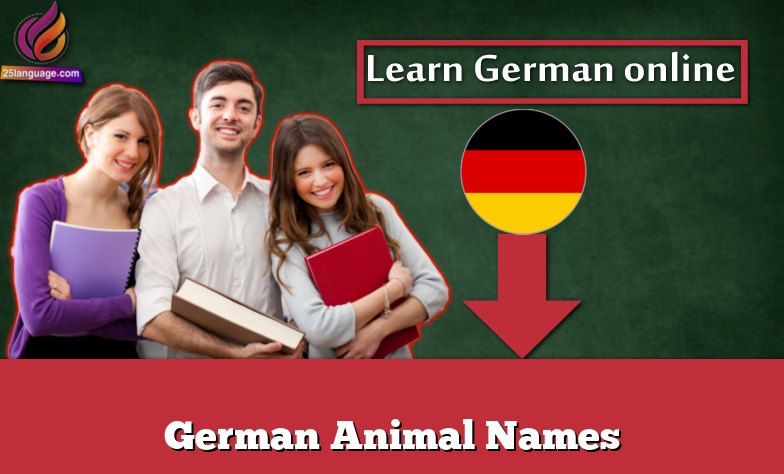
German Animal Names. Germany is a big country with tons of diversity and an expansive territory.
You can take a swim in the North Sea at Germany’s island of Sylt, go skiing in the Bavarian Alps, or even check out Berlin’s East Side Gallery to see some murals from the post-WWII era.
All of this and more makes Germany an appealing country to visit as a tourist, especially thanks to the country’s abundance and variety of nature.
One of the most appealing elements of nature—and life in general—is animals. Picking up a few German animal names before your visit is sure to enhance your experience, especially if you plan to spend some time in the great outdoors.
Even if you never set foot in Germany, learning these basic words will take your German-language skills up a notch and maybe even help you see the world through a fresh set of eyes. After all, many animals are rather similar to us: they have emotions, they survive, and they have many of the same essential needs as we do.
To help you build your animal vocabulary and limit how often you resort to English, we’ve compiled this masterlist of words for animals in German.
Without further ado, let’s get right into it…
1. At Home (Pets)
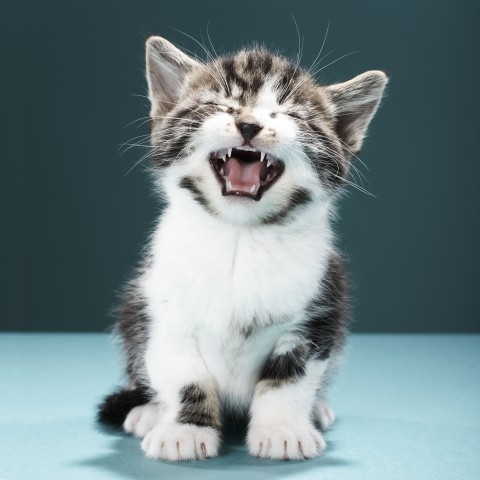
Cats are the #1 pet of choice in Germany. In fact, a mere 22 percent of households in Germany are home to more than 14 million cats in total. (Dogs are a close second!)
Not only is Germany pet-friendly, but the treatment they give to their pets is simply outstanding. Yet, if you’re a foreigner (especially from outside the European Union) planning to move to Germany with your pet, you’ll want to make sure you become familiar with the legal procedures.
All pets are tax-exempt in Germany, except for non-rescue dogs. For these, you’ll have to pay a Hundesteuer every year.
Here’s a list of nine at-home pet names in German:
| Katze | “Cat” |
| Hund | “Dog” |
| Hamster | “Hamster” |
| Kaninchen | “Rabbit” |
| Maus | “Mouse” |
| Ratte | “Rat” |
| Meerschweinchen | “Guinea pig” |
| Goldfisch | “Goldfish” |
| Papagei | “Parrot” |
2. On the Farm (Farm Animals)
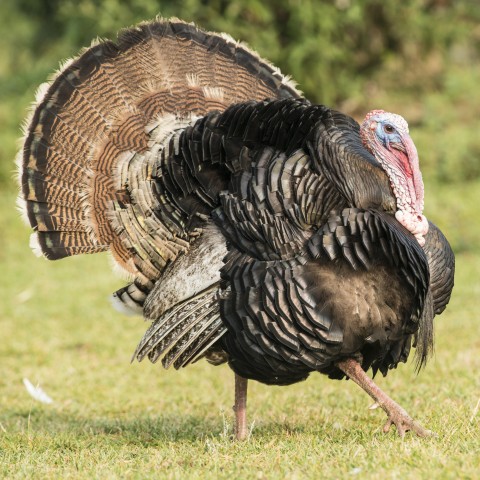
Germany is one of the most developed countries in terms of agriculture, and 80% of the country’s total land is used for forestry and agricultural activities.
Germany is known for its fast adoption of technology in agriculture, as it’s replacing more and more farm workers with machinery over time.
With the great significance agriculture carries in Germany, you never know when the need may arise for some animal vocabulary. Below, you’ll find the names of a few farm animals in German to get you started.
| Kuh | “Cow” |
| Schwein | “Pig” |
| Schaf | “Sheep” |
| Ziege | “Goat” |
| Pferd | “Horse” |
| Huhn | “Chicken” |
| Henne | “Hen” |
| Hahn | “Rooster” |
| Gans | “Goose” |
| Ente | “Duck” |
| Truthahn | “Turkey” |
3. In the Wild / Forest / Safari (Land Animals)
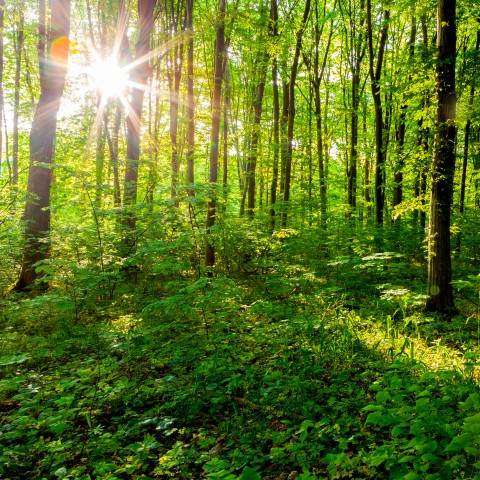
Germany hosts several beautiful national parks, most notably the Bavarian Forest National Park and the Eifel National Park. Considering that 2% of Germany’s territory is covered by wilderness, there are more than enough options to satisfy adventurers and nature lovers.
Your adventures are bound to be more interesting when you could stumble upon wolves, foxes, boars, and a number of other wild animals on your trek!
- to learn more useful words for wild animals in German!
| Bär | “Bear” |
| Wolf | “Wolf” |
| Hirsch | “Deer” |
| Hase | “Hare” |
| Fuchs | “Fox” |
| Igel | “Hedgehog” |
| Eichhörnchen | “Squirrel” |
| Eber | “Boar” |
| Murmeltier | “Groundhog” |
| Löwe | “Lion” |
| Tiger | “Tiger” |
| Jaguar | “Jaguar” |
| Panther | “Panther” |
| Elefant | “Elephant” |
| Giraffe | “Giraffe” |
| Affe | “Monkey” |
| Gorilla | “Gorilla” |
| Känguru | “Kangaroo” |
| [responsivevoice voice="Deutsch Female" rate="0.8" buttontext="►"]Koala | “Koala” |
| Panda | “Panda” |
| Faultier | “Sloth” |
| Robbe | “Seal” |
| Pinguin | “Penguin” |
| Eisbär | “Polar bear” |
| Walross | “Walrus” |
4. In the Ocean (Aquatic / Marine Animals)
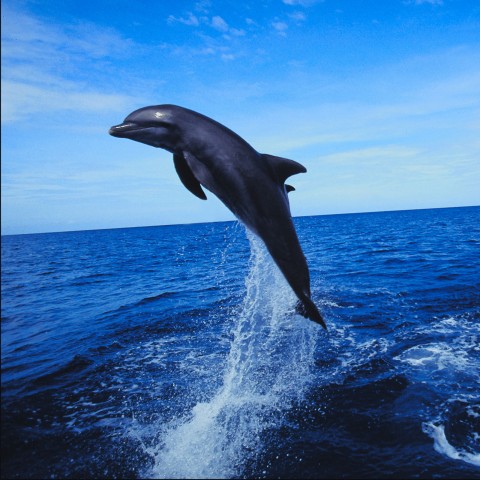
Germany is mostly landlocked, but it does border two large bodies of water up north:
- the North Sea (Nordsee) to the West
- This is Europe’s most significant shipping lane and a major fishing source for Western Europe.
- the Baltic Sea to the East
There are also a variety of lakes (such as Lake Constance [Bodensee] and Chiemsee) that are home to beautiful marine animals and fish.
Here’s a list of 12 aquatic animals in German and English to get you started:
| Fisch | “Fish” |
| Hai | “Shark” |
| Delfin | “Dolphin” |
| Wal | “Whale” |
| Seelöwe | “Sealion” |
| Qualle | “Jellyfish” |
| Tintenfisch | “Octopus” |
| Seepferdchen | “Seahorse” |
| Seeigel | “Urchin” |
| Seestern | “Starfish” |
| Muschel | “Mussel” |
| Seegurke | “Sea cucumber” |
5. Bugs and Insects
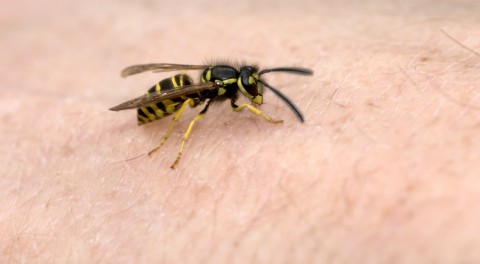
Over the last 30 years, more than 75% of total flying insect mass has disappeared from German skies. These numbers are not unheard of in other countries, and they should sound an alarm to us humans that we ought to become more environmentally aware.
While it does not help the environment, less bugs and insects in the sky does mean less trouble to deal with. This would guarantee better sleep than what you would get in, say, Indonesia or another tropical country—especially if you like to camp or keep the windows open at night.
With that being said, there are several situations where knowing some German vocabulary to describe bugs and insects could come in handy. That’s why we’ve compiled this list of 12 bugs and insects in German along with their English translations:
| Biene | “Bee” |
| Wespe | “Wasp” |
| Moskito | “Mosquito” |
| Fliege | “Fly” |
| Spinne | “Spider” |
| Heuschrecke | “Grasshopper” |
| Kakerlake | “Cockroach” |
| Schmetterling | “Butterfly” |
| Ameise | “Ant” |
| Motte | “Moth” |
| Schnecke | “Snail” |
| Nacktschnecke | “Slug” |
You can also hear and practice the pronunciation of different bugs and insects on our website!
6. Birds
Birds are arguably some of the most beautiful animals. They come in a rich variety of body types and colors, and there are endless species to enjoy.
Like with pets, Germany is a very nice country for birds. It is home to several bird protection organizations, and there is continuous collaboration with the European Union for the same purposes.
| Möwe | “Seagull” |
| Krähe | “Crow” |
| Adler | “Eagle” |
| Taube | “Dove” |
| Eule | “Owl” |
| Elster | “Magpie” |
| Spatz | “Sparrow” |
| Pfau | “Peacock” |
7. Reptiles & Amphibians
Reptiles are always an interesting topic to talk about, especially when we’re talking about the more dangerous species (think black mambas!).
Germany may not be well-known for its reptiles and amphibians, as Australia and Southeast Asian countries would definitely beat it in this department. But in reality, the country is large and diverse enough to host a good variety of species. For example, you can spot wall lizards in Stuttgart, European pond turtles in Geisenheim, and sand lizards in Dotzheim.
Below is a short list of reptiles and amphibians in German for you to review:
| Frosch | “Frog” |
| Kröte | “Toad” |
| Krokodil | “Crocodile” |
| Eidechse | “Lizard” |
| Schildkröte | “Turtle” |
| Meeresschildkröte | “Sea turtle” |
| Schlange | “Snake” |
8. Animal Body Parts
Detail is important, and a good animal description should never lack it.
We’ve compiled a list of animal body parts to help you describe your favorite animals:
| Schwanz | “Tail” |
| Haar | “Hair” |
| Pelz | “Fur” |
| Zahn | “Tooth” |
| Fangzahn | “Fang” |
| Klaue | “Claw” |
| Horn | “Horn” |
| Huf | “Hoof” |
| Feder | “Feather” |
| Flügel | “Wing” |
| Schnabel | “Beak” |
| Mund | “Mouth” |
| Flosse | “Fin” |
| Tentakel | “Tentacle” |
| Mähne | “Mane” |
| Kofferraum | “Trunk” |
| Stoßzahn | “Tusk” |
| Fühler | “Antenna” |
| [responsivevoice voice="Deutsch Female" rate="0.8" buttontext="►"]Bein | “Leg” |
| [responsivevoice voice="Deutsch Female" rate="0.8" buttontext="►"]Schuppe | “Scale” |
| Kieme | “Gill” |
9. Animal-Related Idioms and Slang Expressions
Now that you’ve acquired a good bit of German animal vocabulary, you may enjoy finding creative ways to put these words to use. Here are several idioms and slang expressions in German that mention animals:
| Da wird ja der Hund in der Pfanne verrückt. “The dog in the pan is going crazy.” |
That’s enough to drive you round the bend! |
| Jemanden einen Bären aufbinden. “To untie someone a bear.” |
To lead someone up the garden path. |
| Ein blindes Huhn findet auch ein Korn. “A blind chicken happens to find corn too.” |
A blind hen happened to find a grain. |
| Die Katze im Sack kaufen. “To buy a cat in a bag.” |
To buy a pig in a poke. |
| Mit dir habe ich noch ein Hühnchen zu rupfen. “I still have a chicken to pick with you.” |
I still have an axe to grind with you. |
| Du benimmst dich wie ein Elefant im Porzellanladen. “You act like an elephant in a porcelain shop.” |
Like a bull in a china shop. |
| Das geht auf keine Kuhhaut. “It doesn’t fit on a cow’s skin.” |
It beggars description. |
| Mein Name ist Hase, ich weiß von nichts. “My name is Hare, I know nothing.” |
I have no clue. / I have nothing to do with that. |
| Da steppt der Bär. “There the bear steps.” |
The mood is great there. |
| Du hast doch ‘nen Vogel. “You have a bird.” |
You are insane. |
| Alles für die Katz. “Everything for the cat.” |
It was all a waste of time. |
Want to spice up your German a little more? Then head over to our vocabulary list Essential Idioms That Will Make You Sound Like a Native Speaker and our lesson Some of the Most Common Slang Expressions in Germany.
10. Conclusion
There you have it. You have now learned tons of information about wildlife in Germany, and you’re ready to hold a conversation about its most ferocious and beautiful animals. To practice, let us know the name of your favorite animal in German!





























